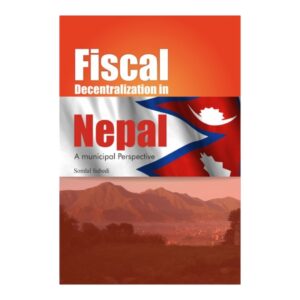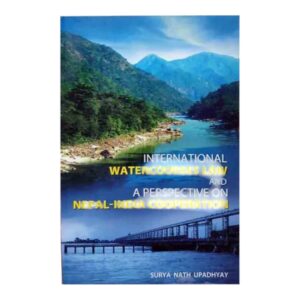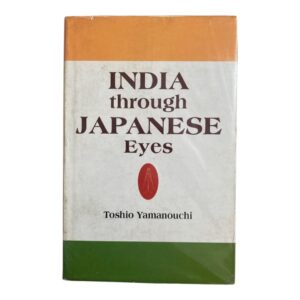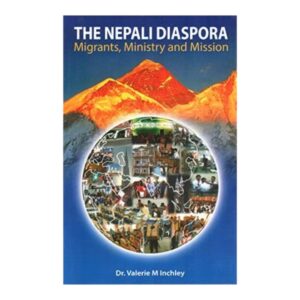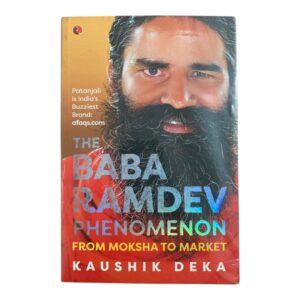-
-
(0)
Fiscal Decentralization in Nepal
₹895.00With the enactment of Local Self-Governance Act (LSGA) in 1999, Nepal embarked on the journey of decentralized governance and devolved some revenue raising and spending powers to local bodies: District Development Committees, Village Development Committees, and municipalities.
-
-
(0)
Happiness is a Choice
₹730.00With up-to-date research, Happiness Is a Choice explains the relationship between your spiritual life and your psychological health. It offers basic steps toward recovery from depression so that you can enjoy a happy, fulfilling life.
-
(0)
India through Japanese Eyes
₹600.00Synopsis
Essays on Japanese understanding of Indian history, civilization. Includes discussion of teaching about India, Japanese views of India in the media and in classroom. Interesting and informative
-
(0)
Kathmandu
₹499.00Kathmandu, the capital of Nepal is an intriguing place – an ancient city wrapped in a lot of mythology, where Hinduism and Buddhism co-exist like siblings from an inter-religion marriage. It is a place ruled primarily by the people of the country. They managed to keep all the colonial forces away from them. Hence, kept the outside influences on their culture to a bare minimum. Landlocked between China and India – they are like a buffer zone who have influences from both. And have trade and pilgrim routes going through them. The world is not aware much of the history and evolution of the city, so I thought this must be a good book to peep into it.
-
(0)
Religion, Law and Power
₹495.00This book constructs an anthropological history of a subaltern religious formation, Mahima Dharma of Orissa, a large province in eastern India. Tracking the contingent making of a critical community over a hundred and forty year period, Religion, Law and Power explores the interplay of distinct expressions of time and history, innovative reformulations of caste and Hinduism and distinct engagements with state and nation. This serves to unravel the wider entanglements of religion, history, law, modernity and power. Ishita Banerjee-Dube provides a situated and critical analysis of the different trajectories of Mahima Dharma, bringing to the fore a clutch of empirical and theoretical issues. Understandings of the articulation and institutionalization of a subaltern religious order are not marked off from, but reveal the techniques and textures of, the modern state and dominant Hinduism. Such moves foreground subaltern and ascetic expressions and negotiations of modernity in institutional and everyday arenas, and further question widespread propositions of a singular Hinduism, especially in India today. ‘Religion, Law and Power’ should be of interest to historians, anthropologists and religious studies scholars as well as general readers interested in religion, politics, community and state. It will be of particular interest to students of South Asia concerned with Hinduism and religious sects, history and law, and power and resistance.
-
(0)
Getting Away With Murder
₹395.00GETTING AWAY WITH MURDER is a locked room (bunker) thriller about eight people trapped in an escape room complex, forced to play by an AI, while the death toll mounts. It is really brutal at times – the manners of death/injury are gruesome at times.
-
(0)
The Nepali Diaspora migrants, ministry and mission
₹378.00United Nations data shows that the size of global diaspora had reached 281 million in 2020, and it
continues to grow. Diasporas have contributed significantly to the development of their native lands
through remittance, technology and knowledge transfer, philanthropy, and diplomacy. Many countries
have designed policies to engage the diaspora more deeply by providing concessional citizenship and
visa regimes, and attractive investment opportunities. Yet, there is room for improvement in policies and
programs to enhance these prospects. -
(0)
The Baba Ramdev Phenomenon from moksha to market
₹295.00The Baba Ramdev Phenomenon offers a detailed account of Ramdev’s journey from attaining moksha in the Himalayas to ruling the market, especially the FMCG sector, with his Patanjali products.
-
India through Japanese Eyes
₹600.00Synopsis
Essays on Japanese understanding of Indian history, civilization. Includes discussion of teaching about India, Japanese views of India in the media and in classroom. Interesting and informative


